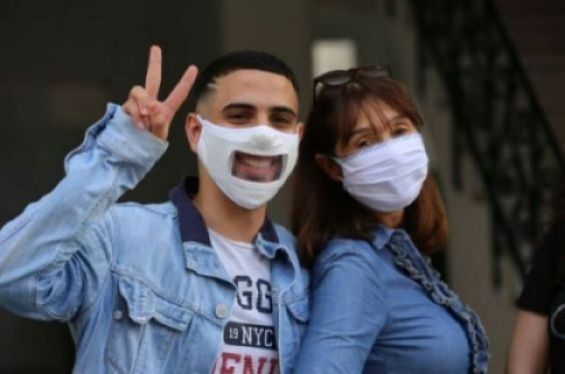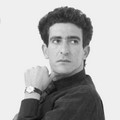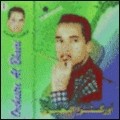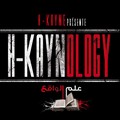In a few days, deaf and hard of hearing people will be able to wear face masks, exclusively designed to meet their needs during the health crisis. Les Sourdoués à Tanger is the association behind this thoughtful project which aims to better the integration of the deaf and hard of hearing community, by facilitating communication between them amid the health crisis. To this end, the manufacture of these masks includes transparent protection on the mouth, to facilitate communication in sign language.
The initiative was launched two weeks after the implementation of the state of health emergency in Morocco Nadia El Alami, president of the association told Yabiladi. «When they wanted to find out about the dates for the resumption of classes within the association, they had to wear masks, and the deaf teacher too; this made it difficult to exchange during our meetings», she explained, indicating that it was hard to communicate with masks on for the community.
Maintaining social ties despite confinement
Since then, Nadia El Alami has continued to think about the best ways to facilitate social interaction for the deaf and hard of hearing during confinement, especially since contact must be maintained with teachers during this period.

Looking for a solution, she stumbled upon the tutorial of an American surfer, showing how to make window masks. So she went to a textile company in Tangier and discussed the idea, which was very positively received.
In May, the factory designed a prototype of these masks, sent to a specialized laboratory in Casablanca, to check the quality of the fabric and its adequacy with health safety requirements, then it was sent to the Imanor Institute for certification. The validation of the model, however, is still pending, says El Alami.
«These are washable masks that can be used seven times. But they can only be used when needed. For example, deaf people can wear a conventional mask when they don't need to communicate, so they can keep transparent ones in their possession for as long as possible».
Awaiting the propper certification necessary to manufacture the masks, the association embarked on another adventure, where it attempted to contact the other NGOs acting on behalf of deaf and mute people in Morocco, to help the community in other parts of the country. «I contacted them in several Moroccan cities in order to send them masks as soon as they are finalized», said Nadia El Alami This initiative ultimately benefited 32 associations, based in 23 Moroccan cities.
Extending the use of window masks to other cities
By tomorrow, the association plans to make at least 2,000 masks which will be distributed when the sanitary containment is lifted. «They were designed and tested with deaf and hard of hearing people who came to the factory to see if they were suitable and comfortable to wear, which helped us improve the design», she added.
«I remember a sentence that a deaf-mute person said to me: 'we are marginalized in society and with the obligation to wear conventional masks during the health crisis, we feel even more marginalized'».
This sentence strengthened the determination of the president of the association to continue her work on appropriate masks and to broaden the initiative. «We will start by designing around 2,000 masks, but we will increase production thereafter and we will also distribute them to pharmacies and doctors, but they will remain free for deaf-mutes», she said.

The association has decided to name these models «Maski'rit» (smiley masks) to facilitate communication during sanitary confinement. «I know that the situation will be even more difficult at the end of the quarantine, because these people will be forced to travel to meet their daily needs and it will therefore be difficult for them to interact with others, without adequate means for this purpose», Nadia El Alami stressed.
According to her, speech-language pathologists and even ENT specialists can acquire these masks, in order to communicate more easily with the people.





 chargement...
chargement...













